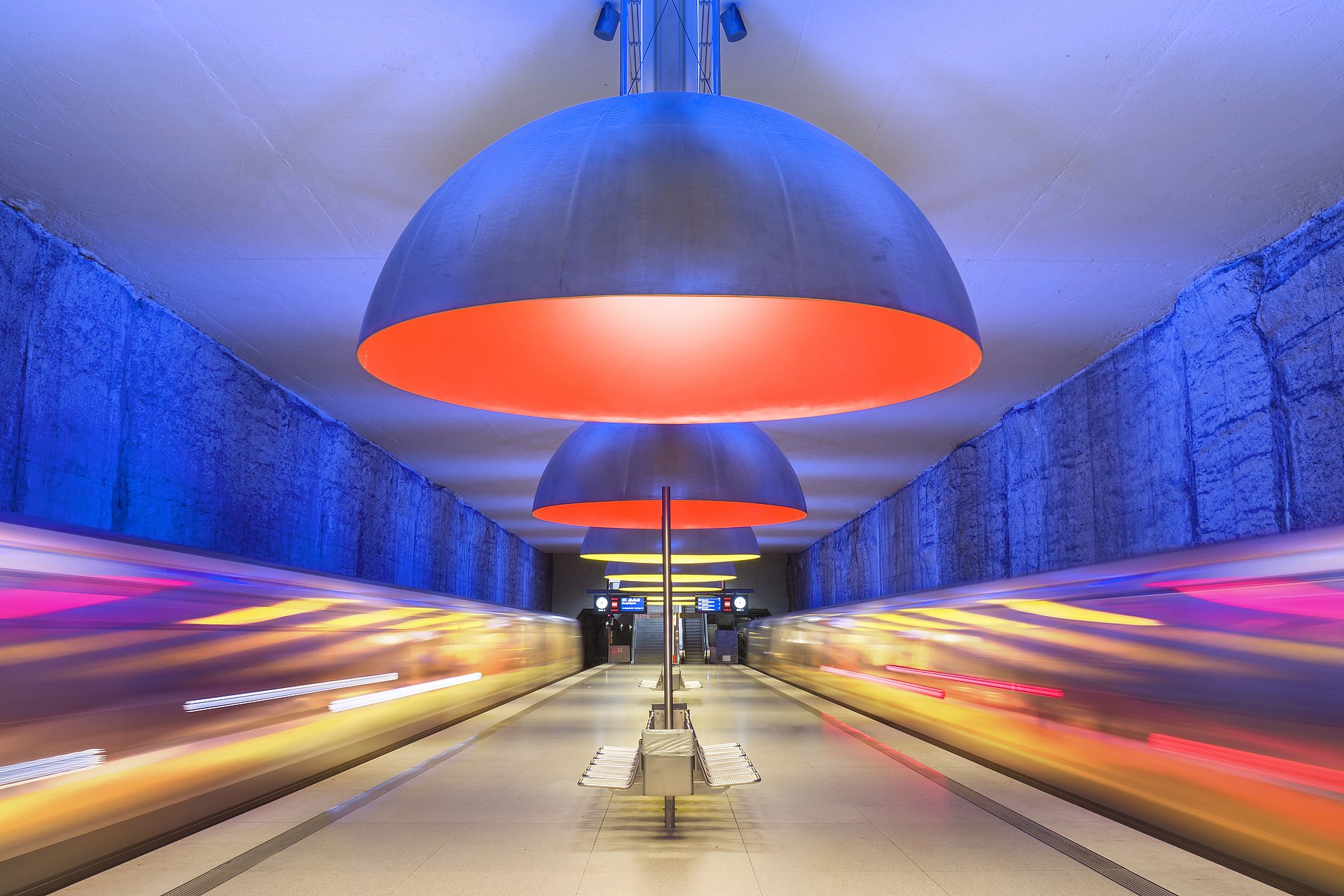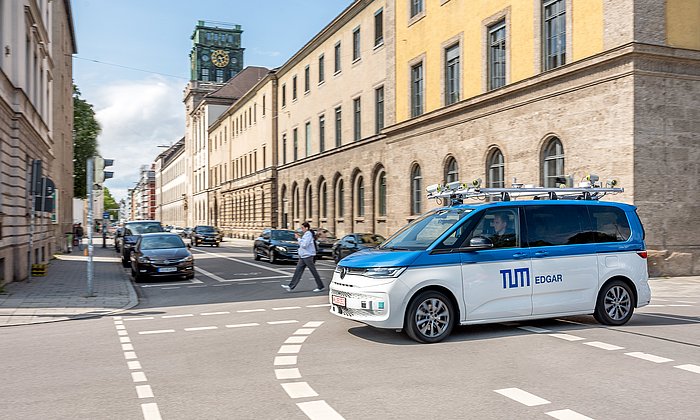The federal government gives the green light for the second funding period
Major success for mobility research MCube

MCube brings together key players from science, business, and society to realize sustainable and transformative mobility innovations with high solution potential for global challenges using Munich as a model. MCube's mission statement is: "Making innovations for the mobility transition - together - possible".
Broad partner network in the MCube
In addition to TUM, the City of Munich, UnternehmerTUM, Stadtwerke, BMW, SAP, Airbus, and Green City are the main partners in the second funding phase of MCube. In total, over 80 partners are involved in the projects. The Bavarian State Ministry of Science and the Arts also generously financially supports MCube.
TUM President Prof. Thomas F. Hofmann said: "This funding decision by the federal government is a powerful signal given the difficult budgetary times. The future of society and the environment depends on us rethinking mobility and focusing on sustainable innovations."
Georg Dunkel, Head of Mobility for the City of Munich: "I am delighted that the Federal Ministry of Education and Research is funding the second phase of the MCube future cluster. Following the successful first phase, we will be able to develop further innovative solutions for the mobility transition in Munich in the coming years together with partners from administration, business, science, and civil society and test them in practice."
The MCube Board of Directors spokesperson, Prof. Sebastian Pfotenhauer, said: "The special feature of MCube lies in the direct involvement of the population in particular. Our unique approach is to search for innovative mobility solutions together with society and not to focus on polarization or a specific technology, but on joint experiments for a sustainable and socially just mobility future - innovation in a broad sense."
MCube Managing Director Oliver May-Beckmann said: "Our approach is radical: We always think of innovation in terms of people, not technology. This sets MCube apart from other mobility projects. We work closely with civil society, involve them in MCube's strategic decisions, include small and medium-sized enterprises, and communicate our solutions to municipalities and regions throughout Germany."
The future projects of MCube
In the first funding phase, 14 projects and a large number of accompanying activities were launched. These included, for example, autonomous driving, rethinking car sharing and charging infrastructure, and changing urban living spaces in temporary real-world laboratories.
The following nine specific projects are to be implemented by MCube in the second funding phase:
- ComfficientShare 2.0 (Comfortable and efficient vehicle sharing on private property) aims to reduce private car ownership through expanded car-sharing options by offering innovative mobility solutions directly at the place of residence.
- MobiPionier (Mobility budgets and bundles in the Munich metropolitan region as an alternative to regulation) examines the potential of mobility budgets and bundles to promote sustainable transport behavior in both urban and rural regions.
- MOSAIQ (Mobility and Urban Climate in Future Neighborhoods) addresses the creation of sustainable and liveable urban neighborhoods through the intelligent integration of green spaces and alternative mobility options.
- DatSim 2.0 (Digital Mobility Twin Munich) expands the possibilities of traffic simulation to precisely analyze mobility innovations' effects on traffic flows and emissions.
- ASUR (Autonome und vernetzte Verknüpfung von Stadt Umland und Region) aims to revolutionize mobility provision in rural areas through autonomous, demand-oriented mobility models (ABM).
- ReFuMoLab_Garching (Reallabor Future Mobility Campus Garching) is a pioneering project that aims to shape the future of urban mobility by integrating and testing new technologies and mobility concepts in a real-life environment.
- WiPa (Effective Participation for Mobility Innovations) is an integration project that supports all projects within the MCube cluster by providing advice and services relating to participation and communication.
- EPURA (Evaluation, Processes, Upscaling, Replication & Application) ensures that MCube projects generate maximum benefit for metropolitan regions by developing exploitation and utilization strategies.
- ReMIX (Responsible Mobility Innovation and Experimentation) aims to improve the governance of mobility innovation and develop best practices for integrated mobility planning.
TUM and MCube
Around a dozen TUM chairs from various schools are involved in MCube. In addition to Sebastian Pfotenhauer, who is Carl von Linde Professor for Innovation Research, the board of directors consists of Prof. Markus Lienkamp, Chair of Automotive Technology and Sector Leader Mobility of the Munich Institute for Robotics and Machine Intelligence (MIRMI), Prof. Gebhard Wulfhorst, Chair of Urban Structure and Transport Planning, and Prof. Jeanne Rubner, TUM Vice President for Global Communications and Public Engagement.
Technical University of Munich
Corporate Communications Center
- Ulrich Meyer
- presse@tum.de
- Teamwebsite
Contacts to this article:
Prof. Sebastian Pfotenhauer
Technical University of Munich
Head of the Departments of Science, Technology and Society (STS) and Carl von Linde Professor for Innovation Research
Tel. +49 89 289 2922
sebastian.pfotenhauer@tum.de



